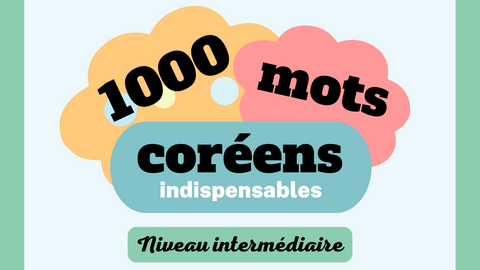Cours de coréen ᚛ Level 1 - My First Steps in Korean (Lessons 1 to 30) ᚛ Leçon 15 - Vowel Contractions in the Present Tense
Vowel Contractions in the Present Tense
Korean is a language that tends to simplify sentences or certain words in order to make expressions more fluid, which can happen when multiple vowel sounds follow each other.
When conjugating certain verbs in the present tense in Korean and when adding 아(요) or 어(요) after a stem that ends in a vowel, it is necessary to contract these vowels to simplify the verb structure.
The stem ends in ㅏ
ㅏ + 아 = ㅏ
가다 (= to go) has a stem 가 which ends in ㅏ. In theory, its casual present form should be 가아. However, ㅏ and 아 are contracted to ㅏ. So, 가다 is conjugated as 가 in the casual style and 가요 in the polite style.
The stem ends in ㅗ
ㅗ + 아 = ㅘ
보다 (= see) has a stem 보 which ends in ㅗ. In theory, its casual present form should be 보아. However, ㅗ and 아 are contracted to ㅘ. This means that 보다 is conjugated as 봐 in the casual style and 봐요 in the polite style.
Note: the contraction is not obligatory but extremely common, especially when speaking.
The stem ends in ㅓ
ㅓ + 어 = ㅓ
서다 (= to stop) has a stem 서 which ends in ㅓ. In theory, its casual present form should be 서어. However, ㅓ and 어 are contracted to ㅓ. This means that 서다 is conjugated as 서 in the casual style and 서요 in the polite style.
The stem ends in ㅜ
ㅜ + 어 = ㅝ
주다 (= to give) has a stem 주 which ends in ㅜ. In theory, its casual present form should be 주어. However, ㅜ and 어 are contracted to ㅝ. This means that 주다 is conjugated as 줘 in the casual style and 줘요 in the polite style.
Note: the contraction is not obligatory but extremely common, especially when speaking.
The stem ends in ㅣ
ㅣ + 어 = ㅕ
치다 (= to hit) has the stem 치 which ends in ㅣ. In theory, its casual present form should be 치어. However, ㅣ and 어 are contracted to ㅕ. This means that 치다 is conjugated as 쳐 in the casual style and 쳐요 in the polite style.
The stem ends in ㅐ
En savoir +
The stem ends in ㅔ
En savoir +
The stem ends in ㅚ
En savoir +
Summary table of structure
En savoir +
Exercises
En savoir +
Ce livre numérique imprimable contient l’apprentissage de 1000 mots de vocabulaire de niveau intermédiaire répartis en 42 catégories. Il s’agit de la suite directe du premier tome de la série : Coréen - Mes 1000 premiers mots.
Chaque mot de cet ouvrage est accompagné de sa prononciation audio réalisée par un Coréen natif ainsi que d’une phrase d’exemple traduite qui l’utilise en contexte, afin de vous aider à en comprendre la nuance.
Enfin, un outil en ligne d’apprentissage du vocabulaire basé sur la méthode scientifique de Leitner par répétition espacée, la plus puissante à ce jour pour mémoriser le vocabulaire, est inclus. Cet outil vous permet, chaque jour, de vous entraîner au vocabulaire en vous faisant réviser les mots du livre. Il calcule ensuite automatiquement à quel moment vous devez le réviser de nouveau afin qu’il s’ancre petit-à-petit dans votre mémoire long terme et que vous ne l’oubliiez plus jamais.
En savoir +

